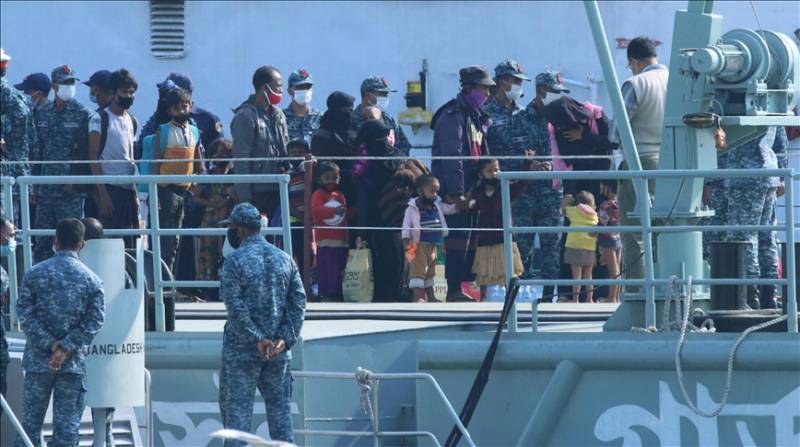The failure to create the conditions necessary for Rohingya refugees in Bangladesh to return home to Myanmar after more than three years has resulted in an "untenable situation" for both the Rohingya and the Bangladesh government, a UN human rights expert said Thursday.
The UN Special Rapporteur on human rights in Myanmar, Tom Andrews, expressed concerns about reports that 1,642 Rohingya refugees have been relocated to Bhasan Char, a remote island, without an independent UN assessment.
"These verifications and assessments are in the best interest of all," he said.
"They will assure the government of Bangladesh of the suitability of Bhasan Char to host refugees or identify changes that might be necessary."
Andrews said the UN had been unable to verify that the island is suitable to host "this vulnerable population" of Rohingya safely.
Such verification would also assure that the government's policy of strict voluntary relocation to Bhasan Char is adequately carried out, he said.
The UN expert said the international community must acknowledge, however, that after three years, its policy regarding the Rohingya refugees has failed.
"It has failed because Myanmar remains unwilling to take meaningful steps to create conditions necessary for the safe, sustainable and dignified return to the Rohingya's place of origin in Rakhine State," Andrews said.
"And it has failed by not sufficiently resourcing Bangladesh to carry out its humanitarian mission."
Bangladesh has defended a controversial plan to relocate Rohingya refugees to Bhasan Char as a move to protect the persecuted people from risks.
Despite an outcry by the international community on safety and rights, Bangladesh transferred the first batch of 1,642 Rohingya on Friday last week to the distant island in Bengal Bay.
The UN special rapporteur urged the Bangladesh government to allow a proposed UN assessment of Bhasan Char island through an independent international verification process.
That process would confirm that those slated for relocation decided to go there on their own free will and with complete and accurate information.
Andrews said he was concerned about reports that some of the relocations were done involuntarily through either coercion or misinformation.
He said it was reasonable for the Bangladesh government to seek to create options for the refugees who desire alternatives to the mega camps in Cox's Bazar.
"The Bangladesh government has been extraordinarily generous and compassionate in providing desperate people with a safe haven in their time of need," he noted.
"Make no mistake: the Rohingya crisis emanated from Myanmar and can only be solved in Myanmar."
He said that the Myanmar government has the moral and legal responsibility to end this crisis.
Since Aug. 25, 2017, nearly 24,000 Rohingya Muslims have been killed by Myanmar's state forces, according to a report by the Ontario International Development Agency (OIDA).
More than 34,000 Rohingya were thrown into fires, while over 114,000 others were beaten, said the OIDA report, entitled Forced Migration of Rohingya: The Untold Experience.
As many as 18,000 Rohingya women and girls were raped by Myanmar's army and police and more than 115,000 Rohingya homes burned down, while 113,000 others were vandalized, it added.






